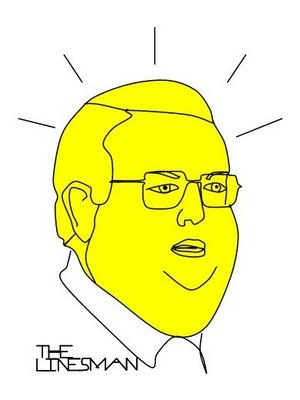 The Emissions Trading Scheme Review committee has released the first batch of submissions it has received — those made by organisations and individuals who have already made their presentations to the committee. There are some heavy hitters in there: from New Zealand’s science and policy community there’s the Climate Change Centre (a joint venture between the University of Canterbury and Victoria University of Wellington, plus all the Crown Research Institutes – from NIWA to AgResearch), VUW’s Climate Change Research Institute, and GNS Science, and from the world of commerce, we have the Business Roundtable‘s “evidence”. Why the quote marks? Because the Roundtable’s submission is a fact-free farrago of nonsense.
The Emissions Trading Scheme Review committee has released the first batch of submissions it has received — those made by organisations and individuals who have already made their presentations to the committee. There are some heavy hitters in there: from New Zealand’s science and policy community there’s the Climate Change Centre (a joint venture between the University of Canterbury and Victoria University of Wellington, plus all the Crown Research Institutes – from NIWA to AgResearch), VUW’s Climate Change Research Institute, and GNS Science, and from the world of commerce, we have the Business Roundtable‘s “evidence”. Why the quote marks? Because the Roundtable’s submission is a fact-free farrago of nonsense.
Tag: energy
Ignorance in high places
 The Minister of Energy, Gerry Brownlee, was reported on National Radio this morning as stating that the energy strategy policy of the last government is going to be altered, because it subsumed energy policy under climate change. I was appalled by what I heard and tracked down the text of his speech, hoping it wasn’t as bad as it sounded. It was. Here is the section in which he dealt with the subject:
The Minister of Energy, Gerry Brownlee, was reported on National Radio this morning as stating that the energy strategy policy of the last government is going to be altered, because it subsumed energy policy under climate change. I was appalled by what I heard and tracked down the text of his speech, hoping it wasn’t as bad as it sounded. It was. Here is the section in which he dealt with the subject:
The current Energy Strategy represents the high point of the total subsuming of energy policy into climate change policy. The whole Strategy is an idealistic vision document for carbon neutrality.
You need only read the foreword of the NZES to get a sense of this. “Sustainability” and “sustainable” are mentioned thirteen times, “greenhouse gas” is mentioned four times, and “climate change” is mentioned three times. That is all very good, but security of supply rates only one mention. Affordability is not touched on at all. Nor is economic growth.
The National-led Government believes a refocusing of the Energy Strategy is required. The new strategy will focus on security of supply, affordability, and environmental responsibility, with the overriding goal of maximising economic growth.
The Energy Strategy involved widespread public consultation. I certainly made a submission on it. It is an overly cautious, but still relatively hopeful document, carrying the subtitle “Towards a sustainable low emissions energy system.”
There is an air of ignorant complacency to Brownlee’s statement. Energy policy can’t be decoupled from climate change policy. They belong together. The whole world knows this. The new Secretary for Energy in the US, Steven Chu, is in no doubt about it. He states quite clearly that his interest in energy has grown out of his concern about climate change. But much of what Brownlee has done so far reveals how threadbare his understanding of climate change is. He has lifted the ban on fossil-fuel powered electricity generation. He has reversed the decision to ban incandescent light bulbs. He has wiped the biofuel obligation only months after it was legislated. And now this statement.
Is this an example of what John Key meant when he said during the election campaign that economic growth takes precedence over environmental policy? I wrote about that at the time.
The government needs to bring itself up to date with the science, or even with what policy makers in some significant countries (like the US) are now saying.
The Obama Factor
This column appeared in the Waikato Times on 17 February
Suddenly there appears to be hope. Barack Obama is definite: “The science is beyond dispute and the facts are clear. Now is the time to confront this challenge once and for all.” It’s climate change he’s talking about.
For eight dismal years the Bush administration refused even to acknowledge the threat, let alone take leadership in addressing it. Vested interests prevailed against the scientists who have come to understand what is happening to the climate. The US, alone of all the world’s nations once Australia left their side, refused to participate in even the modest Kyoto treaty and consistently tried to subvert progress towards any further binding international agreement. This although they are responsible for more than 20% of the world’s CO2 emissions and have the highest per capita emissions of all the larger nations.
It’s too late
 The Sunday Times has published a second extract from James Lovelock’s new book, The Vanishing Face of Gaia: A Final Warning, covering his distrust of renewable energy, and his promotion of nuclear power as a key part of adapting to climate change. It’s an interesting read, worth it because it forces us to confront the received wisdom — but I think it’s where Lovelock is at his weakest. ST columnist Camilla Cavendish has an extended review of the book in her column this week, and tends to agree.
The Sunday Times has published a second extract from James Lovelock’s new book, The Vanishing Face of Gaia: A Final Warning, covering his distrust of renewable energy, and his promotion of nuclear power as a key part of adapting to climate change. It’s an interesting read, worth it because it forces us to confront the received wisdom — but I think it’s where Lovelock is at his weakest. ST columnist Camilla Cavendish has an extended review of the book in her column this week, and tends to agree.
Star witness
 The Environment Court is currently hearing the appeal against consents granted for Meridian Energy‘s Project Hayes windfarm in Central Otago — and has been forced to sit through some evidential nonsense from climate cranks. Auckland property developer Roch Sullivan joined the appeal last year, and announced that he intended to bring some leading climate cranks to give evidence. Last Friday it was Chris de Freitas’ turn and he did our plucky little NZ cranks collective proud, as the Otago Daily Times reports under the headline “Professor denies greenhouse effect“:
The Environment Court is currently hearing the appeal against consents granted for Meridian Energy‘s Project Hayes windfarm in Central Otago — and has been forced to sit through some evidential nonsense from climate cranks. Auckland property developer Roch Sullivan joined the appeal last year, and announced that he intended to bring some leading climate cranks to give evidence. Last Friday it was Chris de Freitas’ turn and he did our plucky little NZ cranks collective proud, as the Otago Daily Times reports under the headline “Professor denies greenhouse effect“:
Prof de Freitas, of the University of Auckland, said there was no evidence to suggest carbon dioxide was the major driver of climate change. “Climate is not responding to greenhouse gases in the way we thought it might. If increasing carbon dioxide is in fact increasing climate change, its impact is smaller than natural variation. People are being misled by people making money out of this,” Prof de Freitas said.
He said mild warming of the climate was beneficial, especially in a country such as New Zealand, which had a prominent agricultural industry.
“One could argue that carbon dioxide is quite beneficial. There may be benefits of wind farming that I may not be aware of, but there is no data to show benefits in terms of mitigating potential dangerous changes in climate by offsetting carbon dioxide,” he said.
No evidence to suggest carbon dioxide was the major driver of climate change? I think the good professor is somewhat understating the case — at the very least, being economical with the truth. How a respected academic can ignore 150 years worth of physics and four successive IPPC reports is a matter that might be of interest to psychologists (perhaps even his head of department), but it gets better.
Prof de Freitas admitted there was debate about climate change, when questioned during cross-examination by Central Otago District Council lawyer Graeme Todd. “The debate centres on causes. There is a possibility climate change could be impacted by human beings, but it is not a significant impact,” he said.
In response to a question by commissioner Alex Sutherland, Prof de Freitas said the jury was out on climate change, and preemptive action could be dangerous. “There’s no basis for alarm. We might be shooting ourselves in the foot if we act on what turns out to be a bubble-less pot,” he said.
The jury is still out, not on the reality of climate change, but on whether so misrepresenting the evidence amounts to a contempt of court. The duties of an expert witness before the Environment Court include:
5.2 Duty to the Court
5.2.1 An expert witness has an overriding duty to assist the Court impartially on relevant matters within the expert’s area of expertise.
5.2.2 An expert witness is not an advocate for the party who engages the witness.
Since de Freitas’ areas of expertise include tourism, climate in caves, and suitable clothing for Canadian winters, it appears he is somewhat overstating his expertise in daring to advise the court in those terms. I do hope the judge is lenient, for his sake. Or perhaps de Freitas simply wishes to be acknowledged as an inexpert witness…
